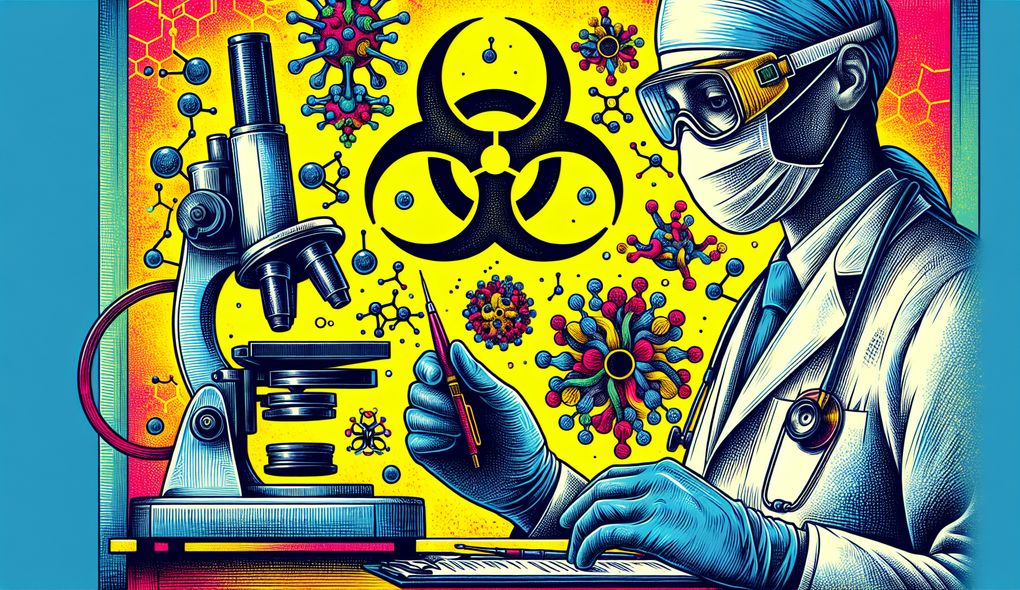How do you balance your clinical care, research, and education responsibilities?
SENIOR LEVEL

Sample answer to the question:
Balancing my clinical care, research, and education responsibilities is all about effective time management and prioritization. I make sure to create a schedule that allocates time for each of these areas, allowing me to fulfill my obligations in each. For clinical care, I prioritize patient appointments and ensure that I am available to provide timely and quality care. In terms of research, I dedicate specific blocks of time for data analysis, literature review, and manuscript writing. And for education, I engage with medical students and residents by conducting lectures and workshops when I am not committed to clinical or research activities. By organizing my time effectively and being proactive in planning, I am able to successfully balance these different responsibilities.
Here is a more solid answer:
Balancing my clinical care, research, and education responsibilities requires careful planning, flexibility, and effective communication. Firstly, I establish a weekly schedule that allows me to allocate dedicated time for each responsibility. For clinical care, I prioritize patient appointments and ensure that I am accessible to meet their healthcare needs. This includes being available for urgent consultations and coordinating with other healthcare providers. When it comes to research, I designate specific blocks of time for data analysis, experimentation, and manuscript writing, ensuring that I stay on track with ongoing projects and deadlines. In terms of education, I actively engage with medical students and residents through lectures, case discussions, and hands-on workshops. This involves collaborating with the medical education team to develop appropriate curricula and assessments. Throughout this balancing act, I remain flexible and adaptable, adjusting my schedule and priorities as needed. Clear and open communication with colleagues and team members is also key, as it ensures seamless coordination and cooperation. By following this comprehensive approach, I am able to excel in all three areas and contribute to the advancement of medical toxicology.
Why is this a more solid answer?
The solid answer provides a more detailed and comprehensive approach to balancing clinical care, research, and education responsibilities. It includes specific strategies such as establishing a weekly schedule, prioritizing patient appointments, dedicating specific blocks of time for research activities, engaging with medical students and residents, and maintaining open communication with colleagues. These details highlight the candidate's organizational skills, ability to prioritize effectively, and their commitment to excellence in all areas. However, the answer could still benefit from providing specific examples or anecdotes that demonstrate the candidate's past successes in balancing these responsibilities.
An example of a exceptional answer:
In my experience balancing clinical care, research, and education responsibilities requires a multifaceted approach that involves not only efficient time management and effective communication but also delegation and collaboration. To ensure optimal clinical care, I prioritize patient appointments and create a flexible schedule that allows me to provide timely and quality care. I also collaborate with other healthcare providers, including specialists and pharmacists, to streamline patient management and enhance interdisciplinary collaboration. In terms of research, I have successfully led and contributed to several projects by leveraging my organizational skills and developing strong partnerships with colleagues. I allocate specific time for data analysis, experimentation, and manuscript writing, but I also delegate tasks to research assistants, enabling me to focus on high-impact areas. Regarding education, I have been actively involved in medical student and resident training, overseeing their progress and providing valuable mentorship. Additionally, I have collaborated with the medical education team to develop educational resources and assessment tools. By embracing delegation and collaboration, I am able to balance my responsibilities effectively while maintaining a high standard of care, advancing research in toxicology, and nurturing the next generation of medical professionals.
Why is this an exceptional answer?
The exceptional answer goes above and beyond by incorporating the candidate's experience and specific examples of successfully balancing clinical care, research, and education responsibilities. It highlights the candidate's ability to prioritize patient appointments, collaborate with other healthcare providers, delegate tasks in research projects, mentor medical students and residents, and collaborate in the development of educational resources. These examples demonstrate not only the candidate's ability to excel in all areas but also their leadership skills and commitment to advancing the field of toxicology. The answer also emphasizes the importance of delegation and collaboration, which are essential for effectively managing multiple responsibilities. However, to further enhance the answer, the candidate could provide more detailed examples of specific research projects or educational initiatives they have been involved in.
How to prepare for this question:
- Familiarize yourself with the responsibilities outlined in the job description and highlight any relevant experience or achievements in clinical care, research, and education.
- Think about real-life scenarios where you had to balance multiple responsibilities and prioritize effectively. Prepare specific examples that showcase your ability to manage time and resources efficiently.
- Consider the importance of effective communication and collaboration in balancing these responsibilities. Reflect on instances where you demonstrated excellent communication skills and the ability to work well with interdisciplinary teams.
- Research current trends and developments in the field of toxicology to demonstrate your knowledge and dedication to staying up-to-date.
- Practice articulating your approach to balancing clinical care, research, and education responsibilities in a clear and confident manner, using specific examples to support your statements.
What are interviewers evaluating with this question?
- Clinical care
- Research
- Education
- Time management

